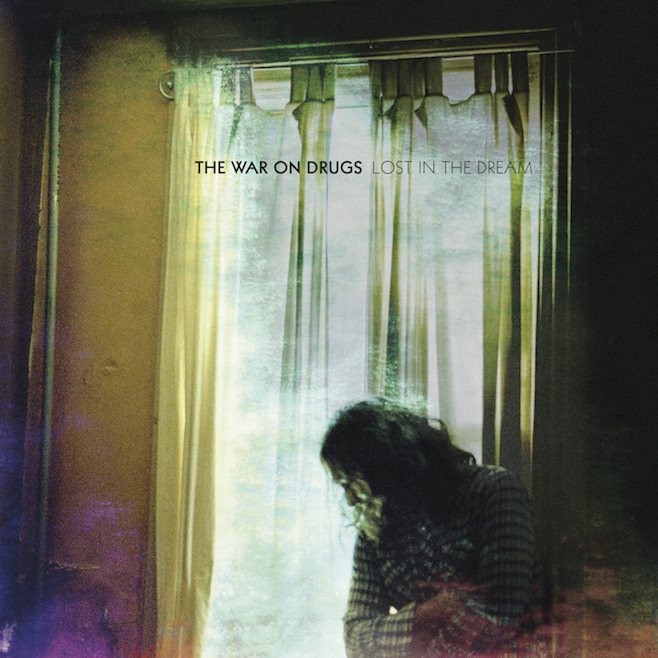Playback: The War On Drugs — 'Lost in the Dream'

With Gene Simmons (and so many other stars) discussing rock's demise, you might be thinking all these naysayers have a point.
In 2014, where else can the guitar be taken? Where can rock go?
Well, for any of you guitar players who find yourself constantly saying "There just isn't any good music anymore," I'd ask you to give this a listen.
Lost in the Dream, the third full-length from Philadelphia's the War on Drugs, is an extraordinary rock record for a number of reasons. It's an album that truly re-imagines the idea of how the guitar works within the framework of a rock band. Rather than using his extraordinary chops to create a singular, distinctive voice, mastermind Adam Granduciel uses the guitar texturally.
In any given song, you might hear dozens of guitar tracks. But Granduciel doesn't do this to overwhelm you; he does it to create the effect of a beautifully mobile and fluid piece of music.
On "Eyes to the Wind," you first hear a galloping acoustic, then some slide playing and a couple of alternating lead lines. But Granduciel is such a master of sound that he manages to take all of these tracks and make them work flawlessly together, creating a deep, mesmerizing whirlpool of sound.
Granduciel channels influences from across the spectrum of classic rock — including the let's-run-away, escapist lyricism of Bruce Springsteen, the poetic sneer of Bob Dylan, the star-gazing instrumentals of late-period Roxy Music and the hooks of Tom Petty. But even though his musical roots are so deeply embedded in the past, Granduciel manages to make all of these influences almost unrecognizable in his own work, such is its sonic innovation.
Get The Pick Newsletter
All the latest guitar news, interviews, lessons, reviews, deals and more, direct to your inbox!
On the ballad "Suffering," he unleashes one of the most sorrowful guitar solos you'll ever hear, wringing every ounce of emotion he can out of every note. "Red Eyes" is propelled relentlessly forward by multiple layers of vivacious acoustics, before Granduciel kicks the song into high gear with a piercing, explosive lead line.
Even with all of the layers, Lost in the Dream never loses sight of the agony that spurred its creation. Granduciel struggled with panic attacks and severe depression throughout the making of the album, and those dark times define the album's framework. It's an album that uses its many layers to convey confusion and loss and the listless haze of emotion that accompanies them. It uses the guitar as an all-encompassing means of expression, rather than an instrument used solely for rhythm or punctuation.
If you're one of those people who agrees with ol' Gene and thinks rock died however many years ago, at least give this a shot. Overall, you really don't have to look far to find rock music in 2014 that isn't only innovative but incredibly meaningful and cathartic.
Lost In the Dream is one of those records that sticks, an album that is restless with ambition and emotional weight, but flawless in execution.
Jackson Maxwell is a sophomore at the University of Massachusetts Amherst. He is double majoring in history and journalism. He is an editorial assistant at the Massachusetts Daily Collegian and has his own music blog entitled "Broken Drums." You can follow him here at broken--drums.tumblr.com/.
Jackson is an Associate Editor at GuitarWorld.com. He’s been writing and editing stories about new gear, technique and guitar-driven music both old and new since 2014, and has also written extensively on the same topics for Guitar Player. Elsewhere, his album reviews and essays have appeared in Louder and Unrecorded. Though open to music of all kinds, his greatest love has always been indie, and everything that falls under its massive umbrella. To that end, you can find him on Twitter crowing about whatever great new guitar band you need to drop everything to hear right now.










